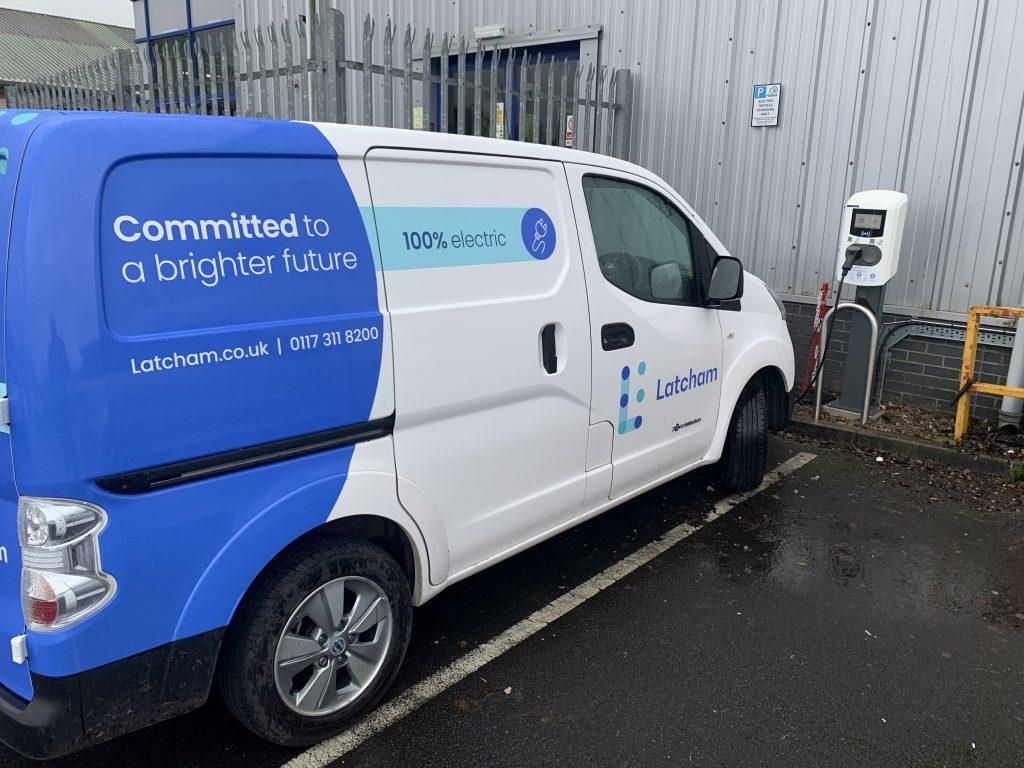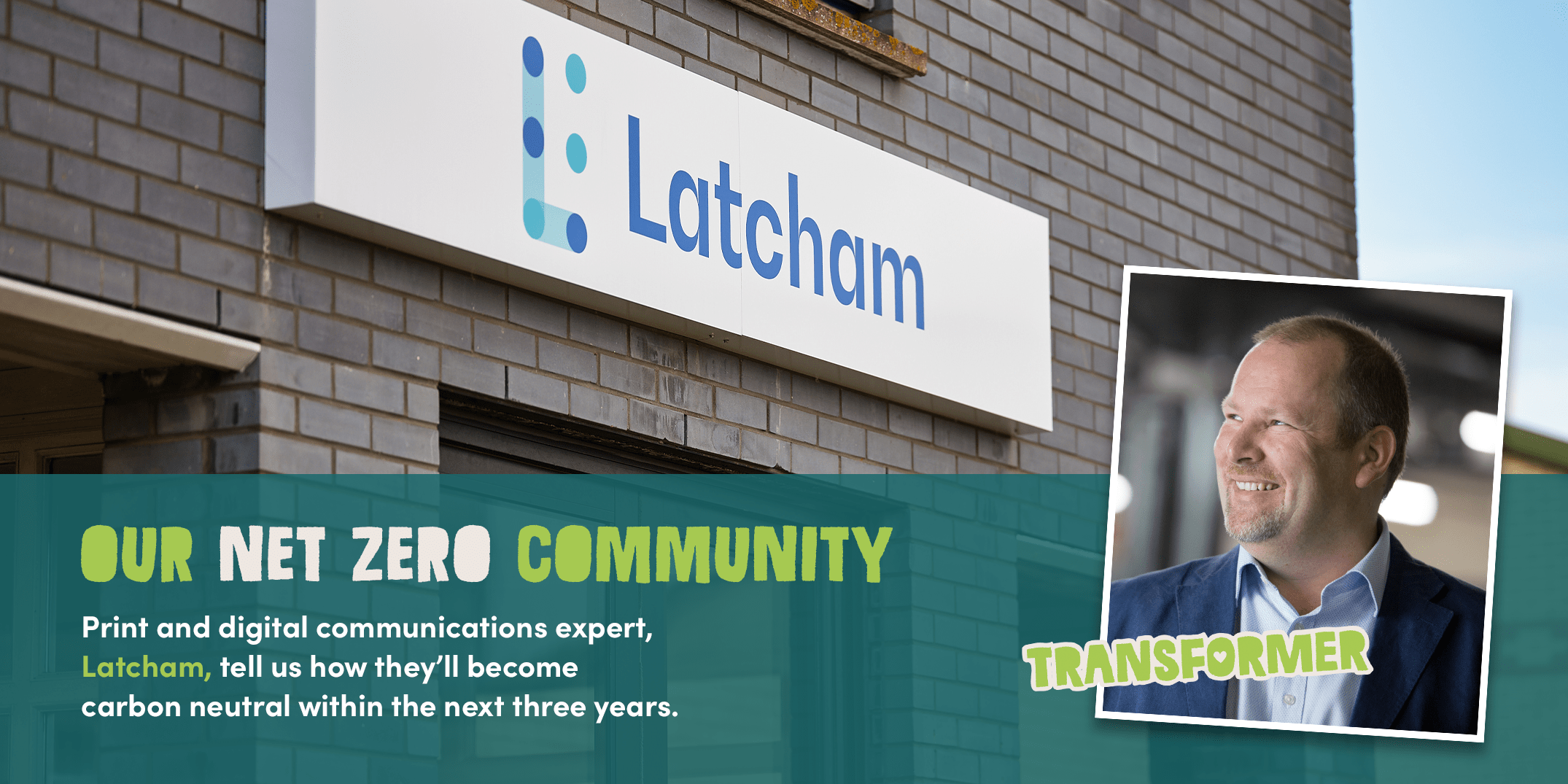Step by step towards carbon neutrality
‘Businesses expend more energy than an individual, so they have to take the lead in tackling the climate crisis’, says Mike Hughes, Managing Director of Latcham.
Established over twelve years ago, Bristol-based Latcham is a print fulfilment and digital communications company that primarily works with the corporate and public sector across the UK.
 In 2017, they were in consultation with Bristol City Council which advised them on a number of measures they could take to become more environmentally-friendly. This work was developed into a Carbon Reduction Plan, highlighting a number of actions which would lead Latcham to carbon neutrality by 2025. The Plan covers many aspects of the business, including operational procedures and manufacturing processes, and is steadily being implemented in a number of small steps. Mike explains;
In 2017, they were in consultation with Bristol City Council which advised them on a number of measures they could take to become more environmentally-friendly. This work was developed into a Carbon Reduction Plan, highlighting a number of actions which would lead Latcham to carbon neutrality by 2025. The Plan covers many aspects of the business, including operational procedures and manufacturing processes, and is steadily being implemented in a number of small steps. Mike explains;
‘There have been all kinds of tiny upgrades around the facility, such as improving insulation, installing low energy lighting, switching to a green energy provider and upgrading the heating system. We also have plans to upgrade the windows and install electric bike chargers and solar panels on the roof.’
While the Plan is their blueprint towards carbon reduction and improved sustainability, for Latcham, the key to achieving carbon neutrality is a programme of continuous improvement and executive sponsorship. It’s clear how important this is to everyone at Latcham, especially Mike, whose passion and commitment ensures sustainability is at the heart of every business decision.
‘Latcham's ambition is to lead the way in delivering sustainable document and fulfilment solutions. And reducing the environmental impact of the services we deliver is just as important to our customers, as it is to us. Working together, we can all do our part to address the environmental challenge by having progressive plans and targets.'
Increasingly, Latcham is finding that new business tenders request visibility of their sustainability agenda and carbon reduction plans. While many businesses are already addressing their “Scope 1 and 2” emissions (those created directly or through bought services e.g gas and electricity), more and more companies have started to look at how they can reduce the “Scope 3” emissions, created by their supply chain of partners and suppliers.
‘As a business we do quite a lot of tenders, especially for the council, and it's more and more evident they are looking for suppliers who are operating sustainably.’
Due to the nature of the work, the majority of the roles at Latcham are factory-based. So it’s been important to encourage sustainable travel where possible. The existing travel policy includes a ‘Cycle to Work’ scheme for both push and electric bikes that has already been taken up by nearly half of the 100-strong workforce. And following a successful EV trial last year, Latcham transitioned its fleet of seven company vehicles to electric and installed twelve electric vehicle chargers, for all to use. To further incentivise the switch away from fossil-fuel cars, Latcham also offer six months free electric vehicle charging at work to any employee who transitions to an EV in their personal lives.
As one of the UK’s leading print fulfilment and digital communications providers, Latcham has already taken steps to make their processes and materials as environmentally-friendly as possible.
‘We upgraded the print technology going from toner based inks which have microplastics in them, to water based refillable print cartridges, thereby reducing the amount of energy spent per page.’
Mike continues, ‘We also offer three different paper options to our clients: FSC (Forest Stewardship Council) paper from responsibly managed forests, recycled paper and carbon capture paper, which includes a donation to the Woodland Trust toward carbon offsetting.’
The steps to become more sustainable have had a noticeable effect on behaviour outside the office too. As an employee recently remarked to Mike;
‘The more I see things being actioned at work, the more important they become to me. It's motivating because I see how the business is trying to do better, so I should too.’
